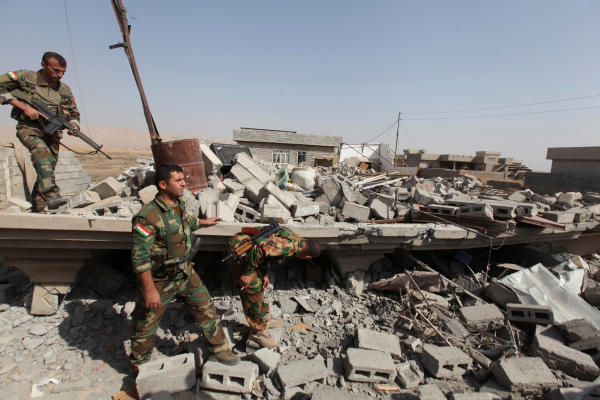The fall of Mosul came as a shock two years ago. Prime Minister Nouri Al-Maliki surrendered his power even though the world thought that removing him would be impossible despite his term having ended. With the fall of Mosul into the hands of ISIS, many of these allegations collapsed.
Al-Maliki, who was obsessed with the idea of absolute power, thought that by defeating Sunni forces that opposed him in parliament, removing them from government, sending his troops to Anbar to discipline them and burning their tents, he could exterminate terror and the opposition. At least that’s how it was sold to the Iraqi people.
The fall of Mosul proved that Al-Maliki created a tool from the state to solely serve his objectives until he emptied it of its constitutional, popular and moral content. The fall of Mosul dragged Al-Maliki into an abyss. It was a terrible fall after it became clear that he knew of the danger and did nothing, that he had appointed his close and incompetent associates to lead the army and had allowed corruption to spread to the extent that it affected security and military institutions.
The fall of Mosul also exposed the lie of the Sunni opposition in provinces like Anbar. They claimed that those who “liberated” Anbar were a national opposition group formed of Ba’athists, tribal councils and members of the Naqshbandi Army. We soon found out that it was ISIS, with its black flags and criminal practices, that took over Mosul.
Arab voices that were enthusiastic about the armed Iraqi opposition and governments that were deceived by the opposition became quiet. Yes, there are angry Ba’athists, opposition tribal councils and the Naqshbandi opposition but as long as the regime intentionally marginalises them, they will continue to be a thorn in its side. However, they did not capture Ramadi and later Mosul. Rather, it was the terrorist organisation ISIS that proceeded to exterminate them and Naqshbandi leaders. They were killed despite their leader Izzat Al-Douri, the former Vice Chairman of the Iraqi Revolutionary Command Council, pleading with ISIS to spare them in an audio recording that was broadcasted by Mosul’s new rulers.
One of the lies that spread after ISIS captured Mosul were the fictitious acts of bravery promoted by Iran. Qassem Soleimani was portrayed as Iran’s invincible leader who was responsible for managing wars abroad, surrounded by his forces and promising to liberate Mosul soon. Two years have passed and we haven’t seen anyone enter the city up until now.
Iran’s forces and its militias are fighting tirelessly but this is not a military miracle as the regime is promoting. Without logistical and intelligence support from the Americans and forces allied with them, they will not be able to seize Mosul without enormous losses, as is clear from their battles in Syria where they were only able to lift the siege on two villages after making numerous efforts and suffering from huge losses. They succeeded in destroying Syrian cities with the aid of the Russian Air Force but they did not capture them. Mosul proved that General Soleimani is just a media legend and exposed the myth of Iranian victories and the false idea that Iran is the protector of Iraq and Syria.
Today, Mosul is being freed by an international force led by Iraqi forces. US led international coalition forces and regional powers such as Turkey have joined the operation to liberate it. The fall of Mosul proved that it is impossible for the sectarian regime in Iraq to succeed as a political regime because it is unable to maintain the security, stability and prosperity of the state’s existence.
Attempts by sectarians to invest in the expected victory in Mosul is just a way of convincing their followers that they represent this victory, ignoring that they are the cause of enduring defeat and tragedy which will reoccur as long as they continue to exploit people’s emotions and tragedies.
